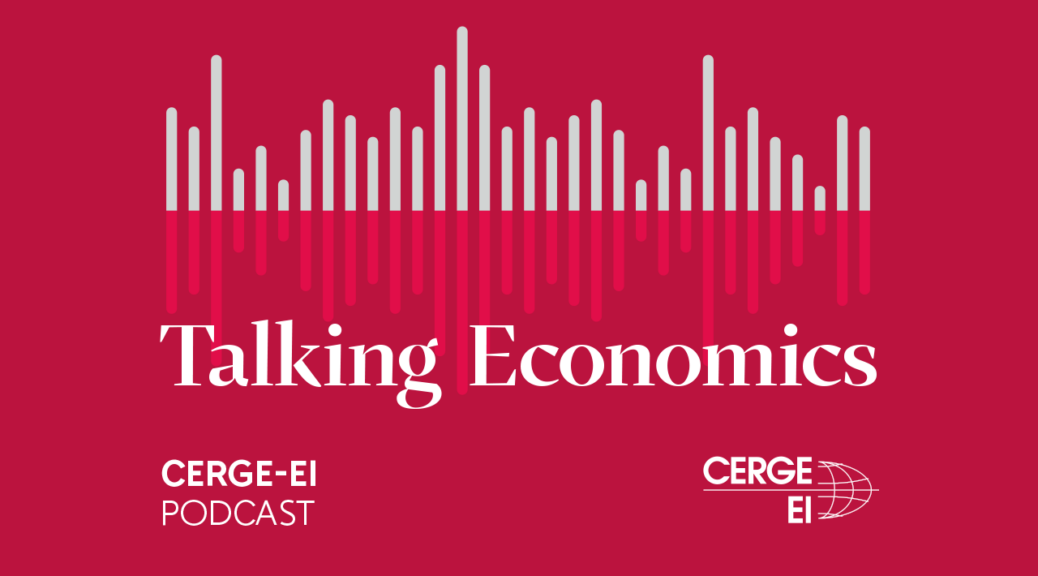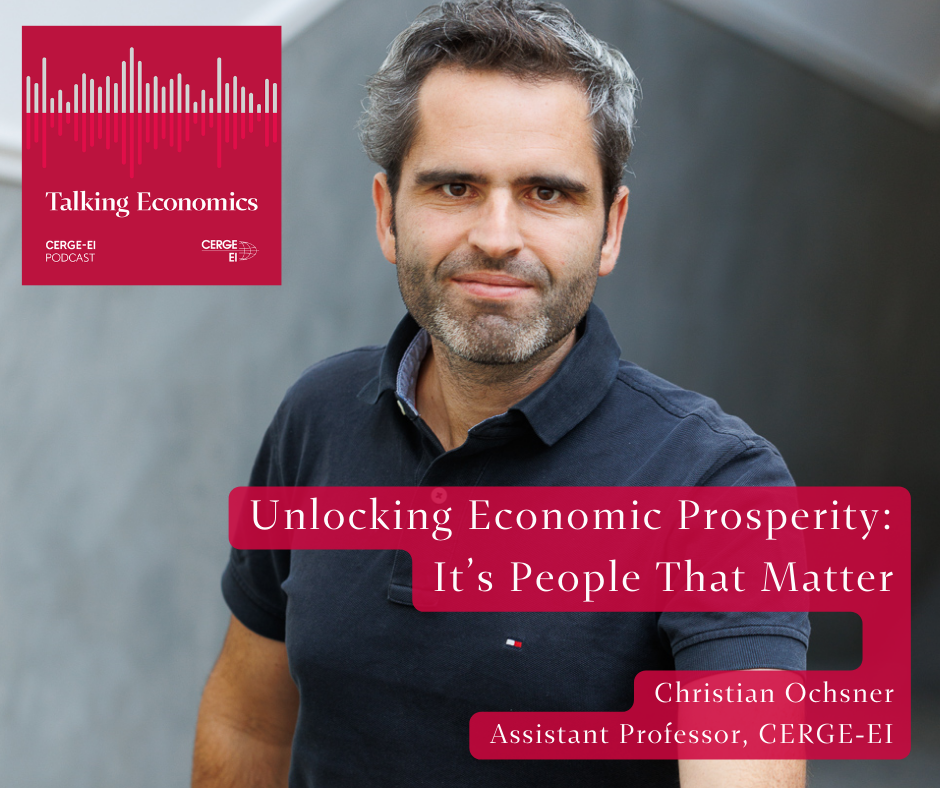Why do some regions thrive while others struggle to keep up in the race for economic development? In a recent episode of Talking Economics, we talk about regional economics with Christian Ochsner, an Assistant Professor at CERGE-EI.
Regional economics, as Christian explains, is about how the regional dimension, encompassing factors like geographical space and countries, interacts with economic decisions and outcomes.
As we journey through the European economic history with Christian, we talk about the disparities between Western and Eastern Europe, even 30 years after the fall of the Iron Curtain. Christian sheds light on how the disruption following World War II, characterized by centrally planned economies, played a pivotal role in shaping these differences. But here’s where the story gets intriguing.
Christian’s research (newly available as a CERGE-EI Working Paper) takes us to a particular Austrian region and reveals a unique narrative. He demonstrates that regions exposed to conflict tend to age as young people move away. The migration of youthful and more fertile individuals to other regions can, surprisingly, boost economic activity and amplify prosperity, even seven decades later. The story of Western and Eastern Europe’s economic disparities is not merely about the aftermath of the war; it is about who chose to stay and who chose to leave.
What can these historical lessons teach us about contemporary conflicts? Christian draws insightful parallels and discusses what we can expect regarding regional differences for example in Ukraine’s future. There’s an essential takeaway from all this: people matter profoundly. “It’s about how to make incentives to bring people back. You have to build up a vibrant society with innovative people,” Christian suggests.
Listen to our in-depth conversation with Christian Ochsner on Spotify, Apple Podcasts, Google Podcasts, or YouTube.
Christian Ochsner is an Assistant Professor at CERGE-EI and a Research Associate at SIAW-University of St. Gallen. He holds a doctoral degree from Dresden University of Technology. In his research, he looks at critical junctures in history and how they matter today.

